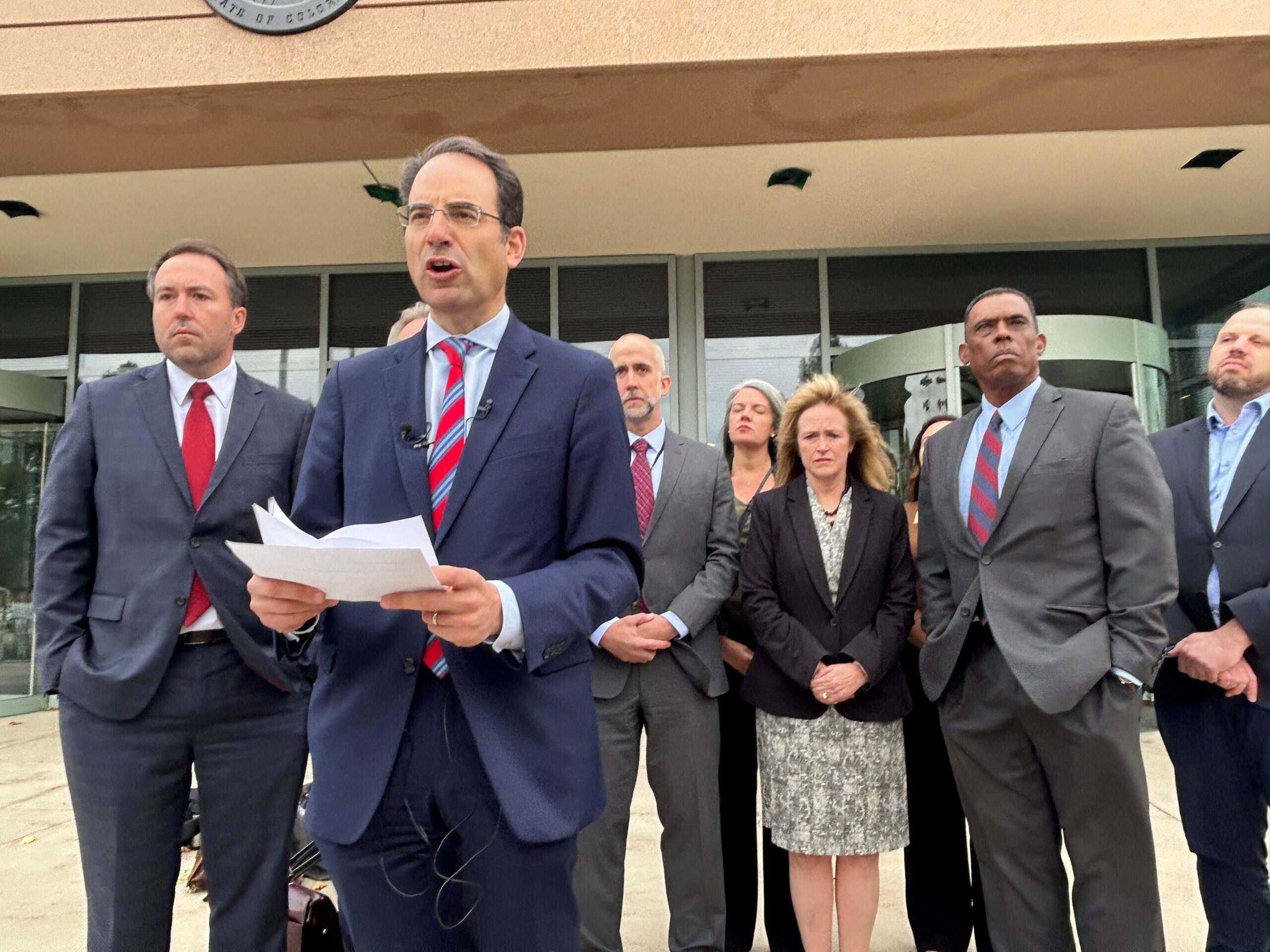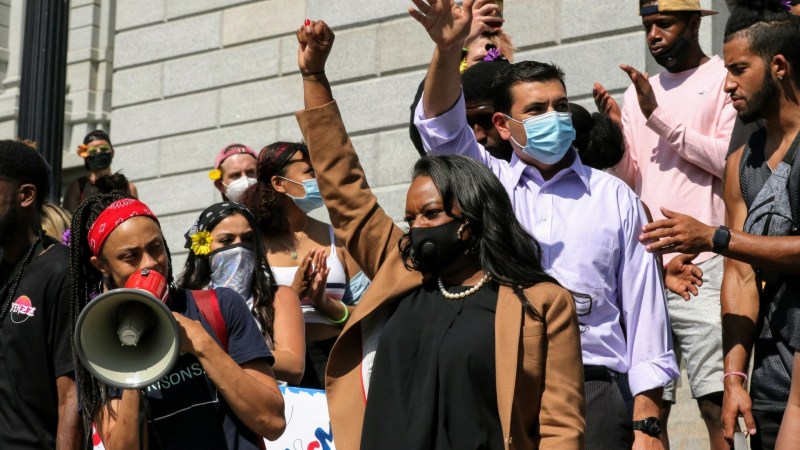
State lawmakers who have worked on policing reform said the split verdict in the trial of two of the officers charged in the death of Elijah McClain indicated that things are shifting with policing in Colorado — but that more needs to change.
“What I want to make sure of is that the policy holds accountable bad actors that exist within law enforcement,” said state Democratic Rep. Leslie Herod of Denver. “There are many law enforcement officers who are sworn to serve and protect, and in fact do. But for the ones who don't, and the ones who do harm in our communities, they should be held accountable.”
A jury found suspended Aurora police officer Randy Roedema guilty of criminally negligent homicide and assault in the third degree. Former officer Jason Rosenblatt was acquitted on all counts.
They are two of the three officers involved in stopping McClain, a Black unarmed 23-year-old massage therapist in August of 2019. McClain was taken off of life support days after being held in a carotid hold and administered a massive dose of ketamine. Jury selection is starting in the trial of the third officer, Nathan Woodyard.
The official cause of McClain’s death is “complications from ketamine after forcible restraint.” In its prosecution, the state argued that if the police officers had followed their proper procedures and training McClain wouldn’t have lost his life.
Herod said Thursday’s verdict was a difficult one for many.
“But I'm particularly holding in my heart Sheneen McClain, Elijah McClain's mother, who was clearly not pleased with the outcome. But what I will say is that this trial — the first of many, really — does highlight the fact that Elijah McClain was innocent. Elijah McClain was not even under suspicion of committing any crime. Elijah McClain did not deserve to die,” said Herod.

In 2020, Herod sponsored a sweeping policing reform bill inspired in part by McClain’s killing. The law cleared the legislature with bipartisan support, moving swiftly at a time when Black Lives Matter protests were occurring daily on the steps of the state capitol, just outside lawmakers’ windows.
Despite the outcome, Herod sees the trial itself as a step forward and said it was Sheneen McClain’s bravery and public pressure that pushed authorities to act, noting prosecutors originally found the officers had committed no wrongdoing.
“It wasn't until we introduced the bill and until Sheneen McClain was able to tell her story that we're able to have this trial today and that the Attorney General even picked up the case,” Herod said.
Under the 2020 law, Colorado banned the use of carotid chokeholds of the type used on McClain, as well as increased the threshold for when law enforcement is permitted to use deadly force against a suspect. Officers now have to show they had reason to believe the suspect was an immediate danger to them or the public. The state also updated the law on qualified immunity to allow people to sue officers in state court if they act in bad faith.
“What I do know is that this work is not done. What I do know is that the work must continue in order to keep our communities safe,” said Herod. She acknowledged that the legislature has lost some of its momentum for justice reform since 2020, but said there remain many members committed to working on the issue.
Democratic Sen. Rhonda Fields of Aurora represents the area where McClain was stopped by police and was another main sponsor of the 2020 law. She said that while the state has made progress in tangible areas, like requiring body-worn cameras and ending qualified immunity, there’s still a long way to go.
“What we haven't cracked the nut on is judgment — police judgment,” said Fields. “So that's more work that we have to do, in reference to police judgment and accountability. Because it can't just be, grab your gun, choke somebody, whatever it is... There needs to be a better thought process involved before they just escalate to excessive force or scenarios where we end up with a dead body.”
This is a developing story and will be updated.








